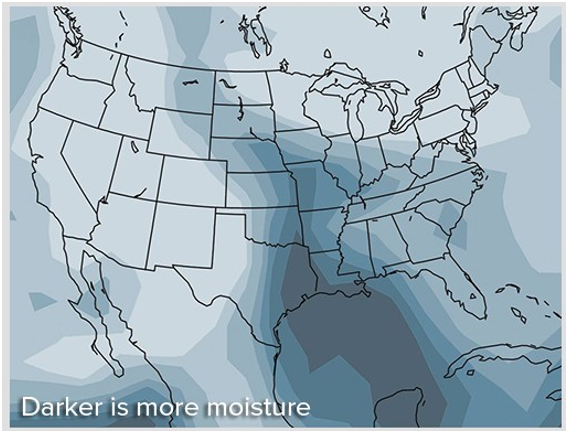After the Sun, the next nearest star to us is approximately __________ away
a. 4 light-seconds
b. 4 light-hours
c. 4 light-years
d. 4 light-minutes
Ans: c. 4 light-years
You might also like to view...
This map shows atmospheric moisture on Day 1 of the weather investigation, with darker areas showing the highest amount of moisture. Based on this map, which area has the moistest air?

A) Northwestern United States
B) Northeastern United States
C) Southwestern United States
D) Southeastern United States
Electromagnetic radiation is generated from all of the following EXCEPT.
A. changes in the energy level of the electron. B. the joining together of protons and neutrons through fusion. C. molecules' electrons and bonds that vibrate. D. unconfined waves that radiate out in all directions.
The jet stream that forms in summer near the tropopause above Southeast Asia, India, and Africa is known as the ____ jet stream
a. polar-front b. tropical easterly c. noctural d. stratospheric polar night e. low-level
At a pressure equivalent to a depth of 670 km the mineral olivine collapses to form ________.
A. perovskite B. calcite C. zircon D. quartz E. mica